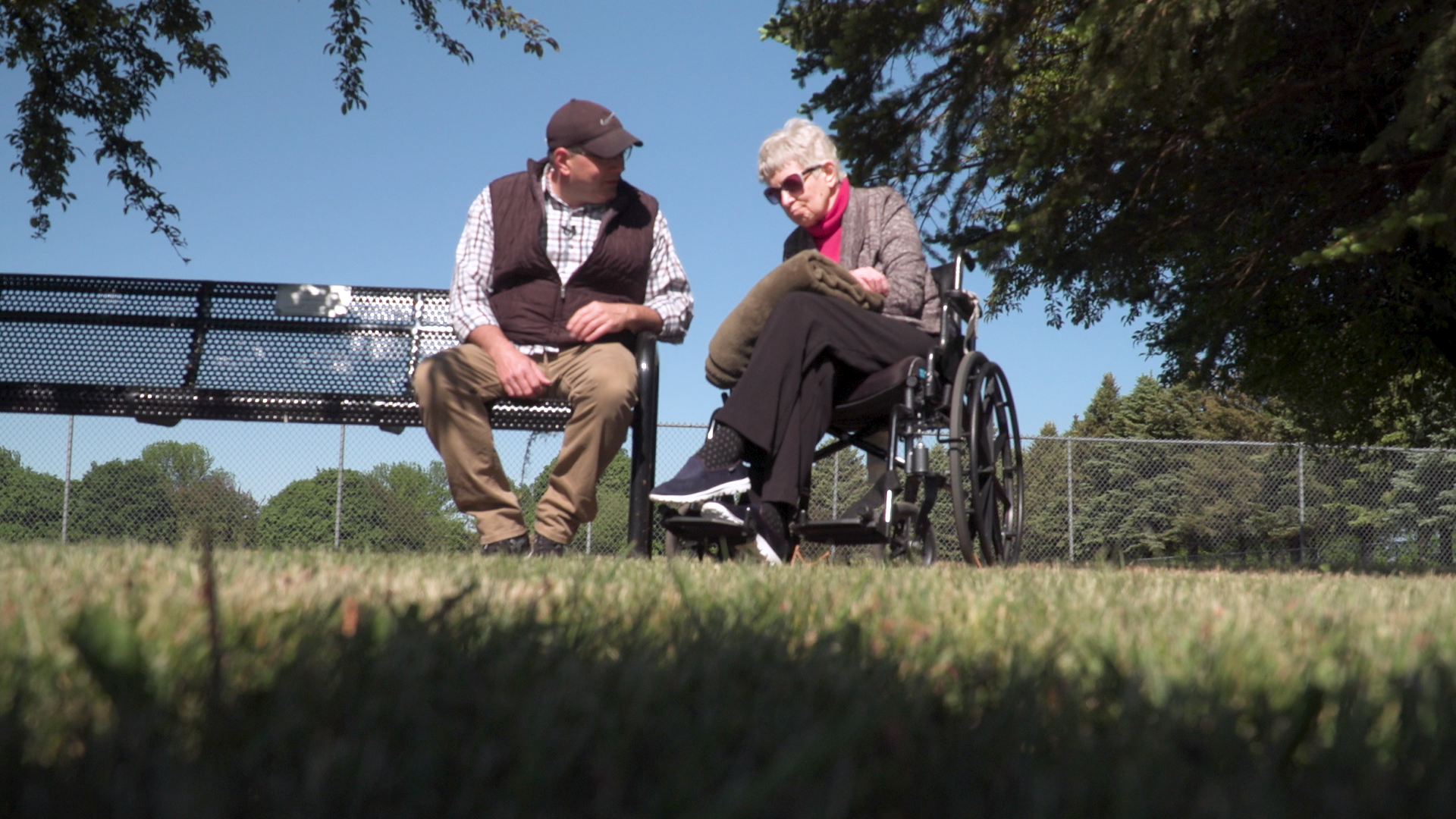Peggy has been living in Rosewood since August of 2013 after Kurt's dad, also named Kurt, was diagnosed with lung cancer.
"We needed a place for her to stay while we were figuring out his treatment options at the Mayo clinic in Rochester," explained Kurt Hoehne. "And we needed someone that knew how to deal with what she was going through. And then at the same time it was respite care for my dad because he needed time to work on his own health issues at the time And working on his and hers at the same time was just too difficult and too hard on him."
Kurt said that he flipped through the Montevideo yellow pages and he really didn't know that the type of care he was looking for was called respite care, but Stacey Olson recognized their need, had an open room at Rosewood and got them set up. "They reached out and asked if we would be able to provide respite care unknown as to how long, knew it was probably going to be at least a week," said Olson. "But that was kind of our introduction to respite care in our facility."
It was pretty seamless moving Peggy in; the hardest part, it seems, was convincing Kurt senior that he needed to be using a respite care service.
"My dad felt it was up to him to take care of my mom. He didn't want anyone else to come in and take care of her. He thought he could keep doing it and, even though he didn't realize he was getting weaker and weaker himself, he just kept doing it," Kurt Hoehne said. "My brother and I just said, 'We've got to make some type of change here because you need some help here,' but then when he realized what he was sick with and he kept getting more tired and sick he then realized that we needed to do something."
"It dawned on him, but it took quite a while because he didn't he was too proud to ask for that help," said Hoehne. "He thought he could keep doing that. I think he was relieved ... when she was in good care. He knew she was in good care and I think he was relieved and he was able to relax a little more."
"A lot of situations arise where, especially the older generation, that they've promised each other they're going to stay at home," Olson said. "So I think it's just still having those open honest conversations that it's okay, at some point not all of us are going to be able to stay at home until the end of life."
This story was made in partnership with the Minnesota River Area Agency on Aging. Compass has been producing stories about people and programs in southwest Minnesota — and throughout the state — designed to help people age with dignity. To watch all of the stories in the series, visit www.pioneer.org/compass/agingwell.



